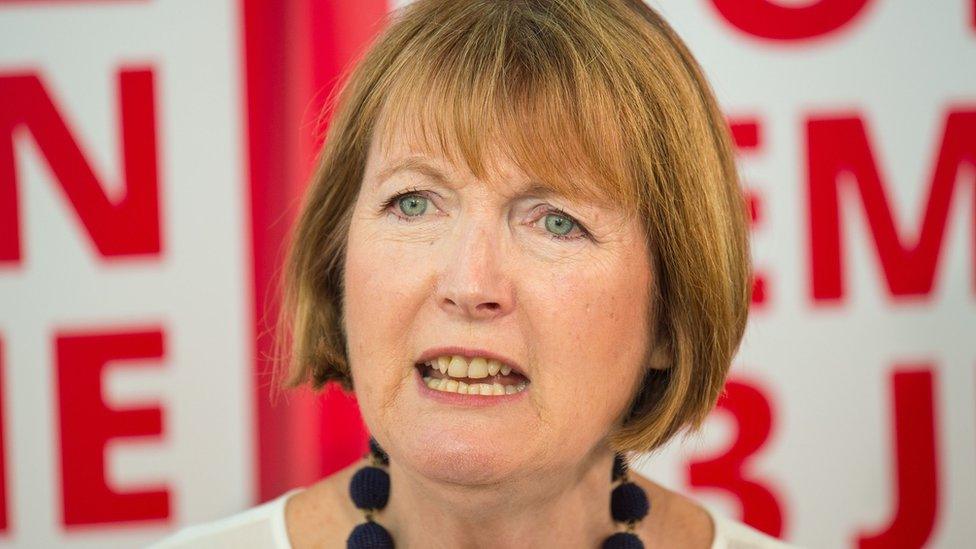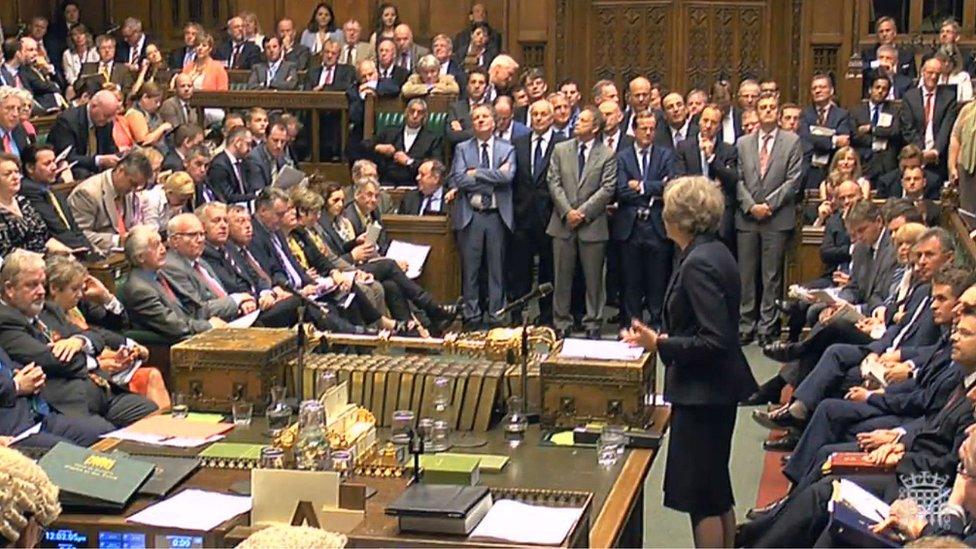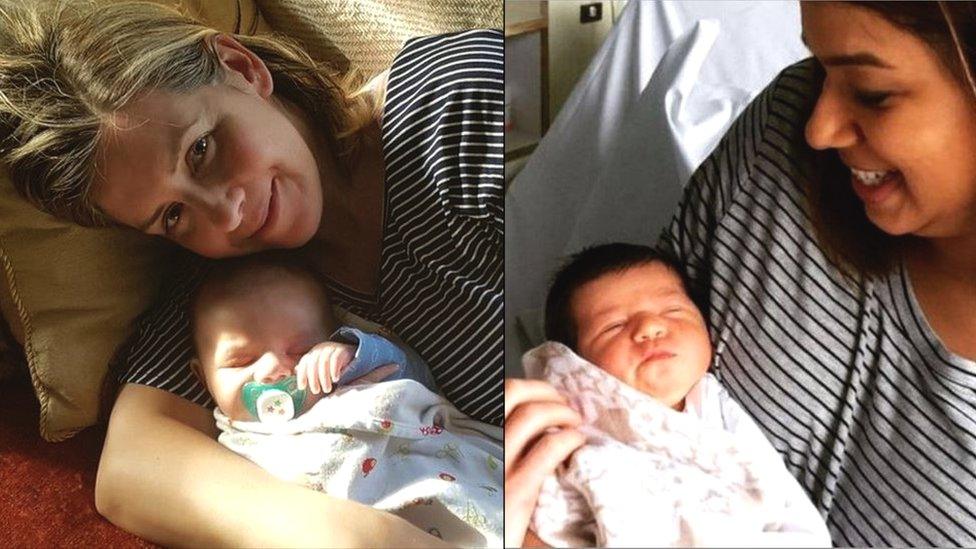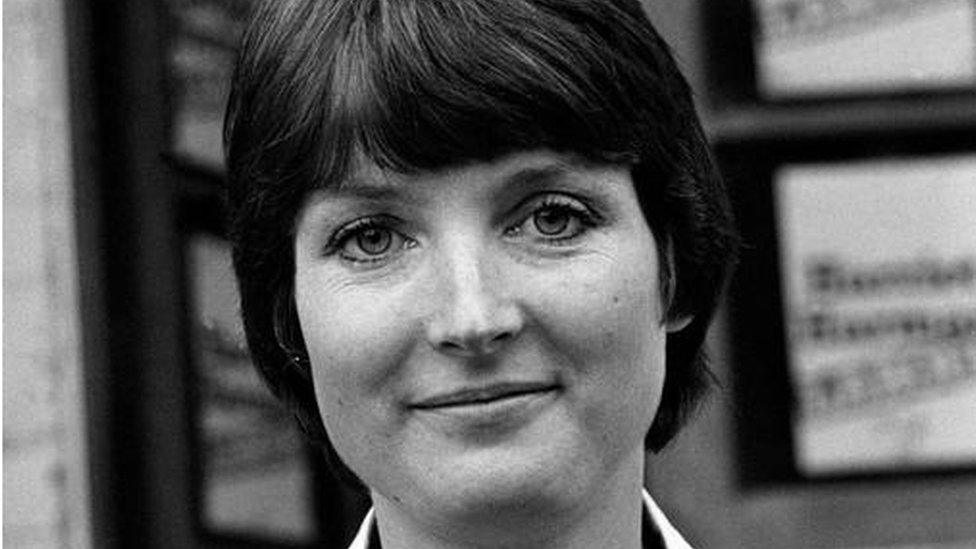Harriet Harman: Give MPs six months' paid maternity leave
- Published

Members of Parliament should be given six months' maternity leave, during which a colleague can cast votes on their behalf, Harriet Harman has said.
The former Labour deputy leader, who has had three children while an MP, said a "proper system of baby leave" in Parliament was "long overdue".
Currently maternity and paternity arrangements in Parliament are informal and operate at the party level.
A cross-party parliamentary group is due to discuss her proposals next week.
The Commons Reference Group on Representation and Inclusion, which was set up last year, is due to make recommendations on maternity, paternity, parental, adoption and caring leave.
Under the current system, MPs are not considered employees and are therefore not given formal maternity or paternity leave, and cannot vote if they choose to stay at home.
Ms Harman said this system was "unacceptable", adding: "The baby needs time with the mother, the mother needs time with the baby and the constituency needs to be properly represented at all times."
'Too much to ask'
Ms Harman, who has campaigned for longer periods of paid maternity leave in the UK, said a policy of six months' paid leave would put MPs in line with the civil service.
The former Labour deputy leader said MPs should be able to nominate a full-time paid "maternity cover" to represent the constituency in their absence.
"Eighteen months' leave for three babies during 35 years' work doesn't seem too much to ask," said Ms Harman, who is the longest continuously-serving female MP.
She added: "The reality is you cannot be on call for your constituency or voting when you are in labour."
Parliament now has a record 208 women MPs, making up 32% of the House of Commons, many of whom are of child-bearing age.
Ms Harman said 17 babies had been born to women MPs since 2010.
Who said what, when, and what happened next?
MP Chloe Smith brought her young baby to the House of Commons so she could take part in the Article 50 vote on the UK leaving the EU in February.
Meanwhile, MP Tulip Siddiq, who had her first child in April 2016, has spoken of the lack of support for young mothers in Parliament, telling the Evening Standard, external: "HR said to me 'there's no standardised maternity leave' and that they haven't had to deal with this 'problem' very often."
Last year, a report, external into women in Parliament written by Prof Sarah Childs suggested MPs nursing an infant should be able to vote from home, or nominate a proxy voter who could also table questions and amendments in Parliament.
Ms Harman has previously spoken about being unable to take maternity leave while representing her Camberwell and Peckham constituency.
"I was too much on the defensive to insist on formal maternity leave, feeling I had to give the impression that I was coping with everything," she wrote in her autobiography, A Woman's Work.
- Published9 August 2016

- Published1 June 2017

- Published16 December 2016

- Published24 March 2017
